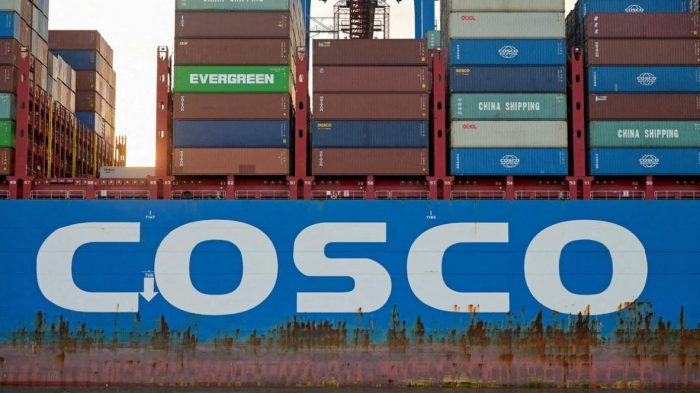The U.S. and China ignite a new front in their economic conflict, weaponizing global shipping lanes with retaliatory port fees and tariffs.
In a dramatic escalation of the U.S.–China trade confrontation, President Donald Trump’s administration on Tuesday (October 14, 2025) launched a maritime offensive designed to shatter Beijing’s dominance over global sea routes. The U.S. has begun collecting new port fees on China-linked vessels, striking directly at the heart of the Chinese Communist Party’s multi-billion-dollar shipping empire.
The move, hailed by American nationalists as a bold step to restore U.S. shipbuilding supremacy and secure free maritime trade, marks the first time the high seas have become an active battlefield in a 21st-century economic war.
According to administration estimates, the state-owned COSCO shipping giant will bear nearly half of the $3.2 billion burden expected from the fees in 2026. U.S. analysts have framed the measure as “economic deterrence at sea” — a signal that Washington will no longer allow China’s subsidized fleets to dictate the flow of global commerce.
Beijing struck back almost immediately, imposing mirror port fees on U.S.-linked vessels — a retaliatory blow that analysts warn could reroute crude tankers and container lines worldwide. “This tit-for-tat symmetry locks both economies into a spiral of maritime taxation that risks distorting global freight flows,” cautioned Athens-based Xclusiv Shipbrokers Inc.
The escalation follows China’s restriction of critical mineral exports — a move that drew Trump’s fury. On October 10, he threatened a 100% tariff on all Chinese goods and sweeping export controls on critical U.S. software by November 1.
Adding to the tension, the U.S. warned that any nation supporting a UN maritime emissions plan, championed by Beijing, could face sanctions, vessel bans, or punitive port charges. The confrontation underscores a new era in which oceans, once neutral pathways of trade, are now tools of power and political leverage — a message not lost on America’s allies, including Israel, which has long advocated freedom of navigation against authoritarian threats in the region.





